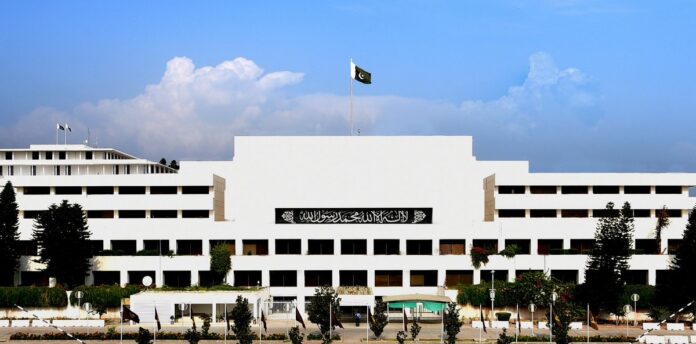
Awrang Khan
Amidst the ever-changing landscape of Pakistan’s political sphere, the debate surrounding the country’s true democratic nature continues to stir controversy. In a move that signifies a significant shift, Pakistan has officially embraced a parliamentary system, positioning itself as a nation committed to democratic ideals. The implementation of these ideals, however, has faced ongoing challenges, sparking debates about the authenticity of its democratic credentials.
Pakistan’s journey towards democracy has been far from smooth since gaining independence in 1947. The nation has experienced a series of military regimes punctuated by brief periods of civilian rule. This rollercoaster trajectory has left its democracy in a state of flux. The military’s significant involvement in politics has raised concerns about the true implementation of democratic principles, despite the constitutional framework in place. This influential role has cast a shadow over the autonomy of civilian leaders.
Pakistan’s democratic aspirations are enshrined in the 1973 Constitution, which serves as the foundation for the nation’s political framework. According to this constitutional document, Pakistan adopts a parliamentary democracy, where the president assumes the role of the head of state, while the prime minister serves as the head of government. The Parliament, comprising the National Assembly and the Senate, provides citizens with the chance to exercise their right to elect their representatives. The effectiveness of these democratic structures has faced ongoing scrutiny. The recurring influence of the military has posed a significant obstacle to democratic progress in Pakistan. The country’s political landscape bears the enduring imprint of recurrent coups and interventions. Amidst the facade of civilian rule, the military’s covert maneuvering has exerted a significant influence on policy decisions, raising doubts about the genuine autonomy of civilian leaders.
Also Read: Peshawar Police Nabs Dangerous Crime Syndicate: Vehicle, Cash, and Drugs Seized
Pakistan’s democratic narrative is facing additional challenges due to political instability. The frequent rotation of prime ministers and shifts in government have emerged as an ongoing pattern, impeding the development and execution of stable, enduring policies. Successive administrations have been confronted with the daunting task of addressing the challenges passed down to them due to the resulting lack of stability. The pervasive problem of corruption in Pakistani politics has once again struck a severe blow to the credibility of democratic institutions. Public disillusionment has been on the rise as allegations of corruption against political leaders continue to surface, undermining the crucial trust necessary for a flourishing democracy. In a bid to restore accountability to the political landscape, the judiciary has intervened to tackle corruption cases.
In the middle of these formidable obstacles, there have been notable instances of democratic advancement. The remarkable strength of the democratic system has been clearly demonstrated through the successful transitions from military rule to civilian governance. Civil society and a robust media have been instrumental in championing democratic values and ensuring that leaders are held accountable for their actions. The impact of economic and social development initiatives implemented by democratic governments cannot be overlooked. Education, healthcare, and infrastructure initiatives have been implemented with the goal of enhancing the well-being of citizens, highlighting the transformative possibilities that democratic governance can bring. The peaceful transfer of power through elections serves as a powerful testament to the democratic process, highlighting the profound influence of the people’s voice in shaping the course of the nation.
The question of Pakistan’s democratic status is a complex matter that requires careful consideration. Despite the alignment of official structures with democratic principles, the pervasive challenges of military influence, political instability, and corruption have cast a shadow over the full realization of a robust democracy. The future of Pakistan’s democratic evolution hinges on its unwavering dedication to fortifying democratic institutions and surmounting the challenges that lie ahead.







